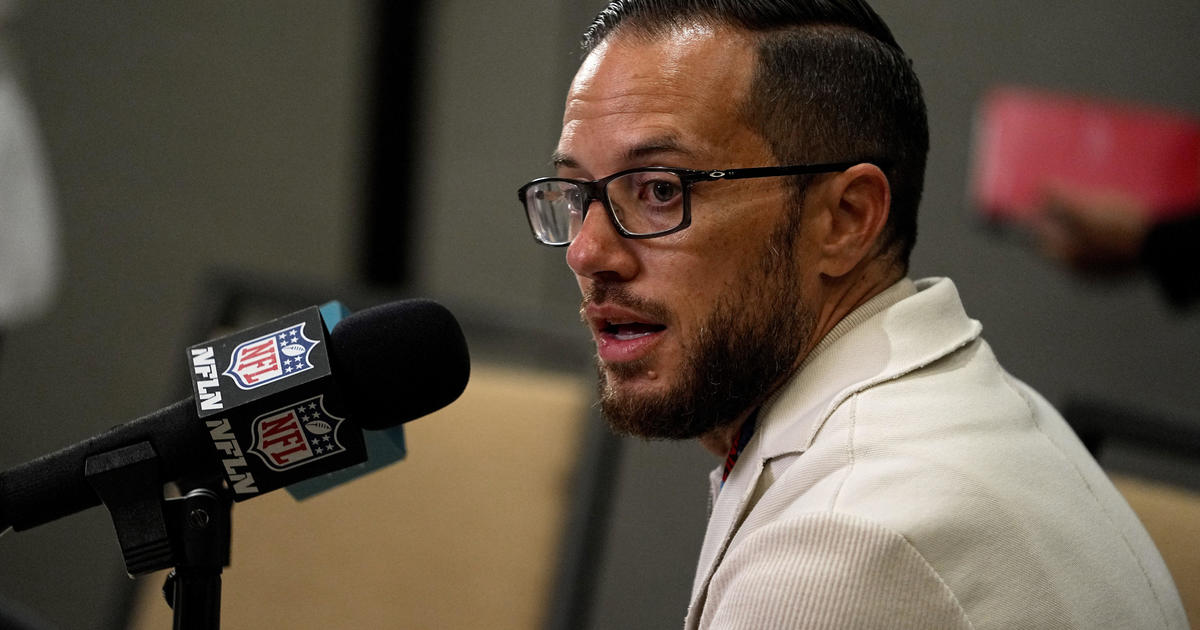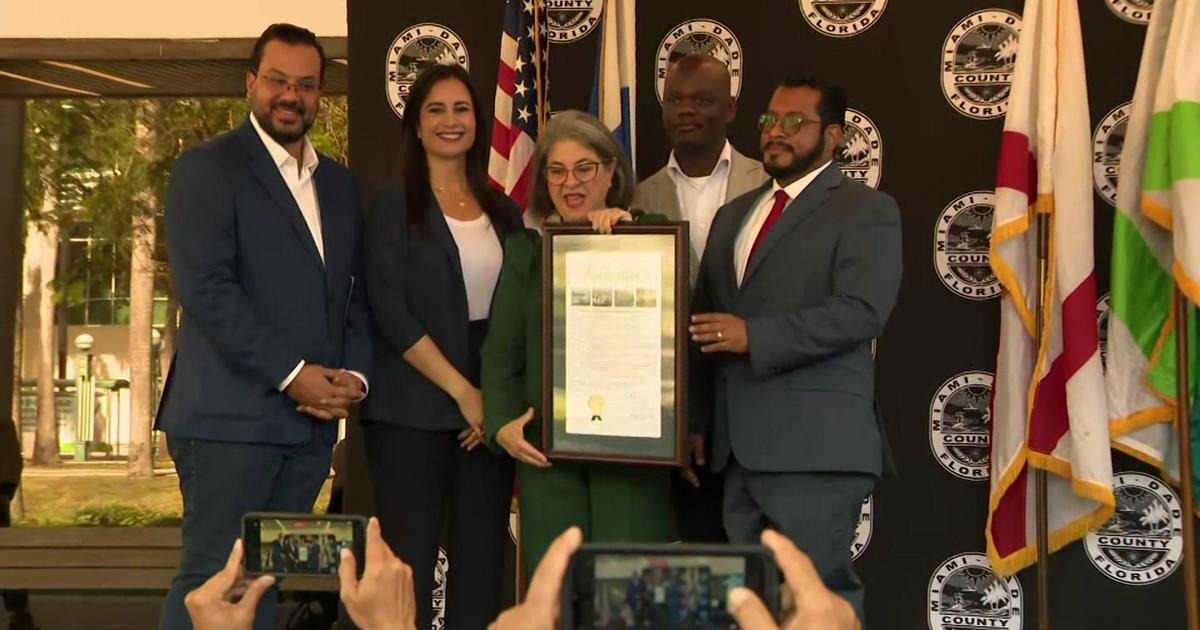Coronavirus Help: Dr. Ken Hopper Shares Tips On Coping With Confinement During COVID-19 Crisis
MIAMI (CBSMiami) – Fear and anxiety about the outbreak of the coronavirus has a lot of people living on the edge. It may not help that many have been forced to be confined inside their homes with hardly any social or physical interaction for several weeks.
Dr. Ken Hopper is a nationally renowned behavioral and population health specialist with 30 years of experience.
He joined Rudabeh Shahbazi and Eliott Rodriguez via Skype to discuss some coping techniques to help with the burden of isolation.
The first thing was his four tips:
1. Keep your plans and goal simple
2. Plan for the short term with a background for the long term
3. Avoid the fear multiplier
4. Remember there is a positive end date
Q: Your work is with inmates and dealing with those living in the confines of prison. What are some of the tips you have for new inmates? And can those be applied to the general public as well?
A: Absolutely, I think the parallels are pretty easy to see. We're feeling a bit helpless and having some rights and other restrictions taken away, or having restrictions placed on us and rights taken away, in order to prevent this disease from spreading. And, of course, the parallel would be that those are happening for inmates too. And so being able to focus on problems that are really the ones we can solve and we can help rather than getting into what I call the fear of multiplier of thinking. All of us have experienced that when we get anxious. But that is extremely important, keeping it very simple and straightforward plans that are progressive one, building upon the other, going from the short term to the long term, making sure that those are accomplishable. And really addressing things we have in our control. All of that ends with a very nice effect of making us in a better position at the end of all this then we would be if we had been becoming anxious and doing maladaptive kinds of things.
Q: What if these social distancing restrictions go on longer than many people expected into possibly into next year?
A: Well, you know, this has required accommodation that, you know, phase one, I call it the, the period where we have a lot of adrenaline flowing because things are very, very different for us. And I think most people are noticing they're accommodating in some form or fashion, maybe getting cabin fever, but they are accommodating. And, you know, this is the story of mankind. If we go to other cultures, we may have completely different rules of how we interact with people. If you live there for a while, you start adapting to those rules. So I think we can be adaptable, and we can come up with new norms. You know, I think, it's hard for us to envision that at the present time, but I am sure there are going to be some pretty innovative kinds of things that come about to help us be able to have those kind of social events without being putting people at risk. It seems hard to think of right now, but it can happen.
Q: Unlike inmates, the general public has access to alcohol, tobacco, maybe even illicit drugs. And there are reports of spikes in alcohol sales during the pandemic. What is the added effect of those factors during this difficult time?
A: Yeah, this is kind of an age old story that happens under stress. And people kind of jokingly talk about, you know, 'I need a drink.' So going to alcohol and people who use illicit drugs, going to those kinds of stress relievers can help with really feeling different, but not really in the right way. It is very clear that when you do that, sometimes judgment goes out the window. We all know that we have seen individuals if we haven't experienced ourselves, the fact that we may act differently, maybe take rules in a very different context and not follow them. And so that happens here. So I would say that it's not the best coping of the company strategy. One, drinking responsibly, not really increasing one's consumption of alcohol is a good rule of thumb in this period.
Q: Do you recommend having a routine and having a specified time of day where you go out possibly to take a walk to exercise to avoid things like PTSD for example?
A: Yes, it's always a good idea to keep a routine. Really almost anything we go through. I am part of a faculty at the medical school and during this period of time, we're training new doctors to deal with stress because this is stressful professionally. And dealing with stress means that you'd get sleep that you eat well, that you eat healthily, that you do take care of yourself and you have time to exercise and get out. And so I think most people that I'm seeing dealing with this successfully are doing those things and definitely wards off, has a backdrop to prevent this anxiety from becoming more permanent, which is what we think of with PTSD. So having this not turned into long term problems, keeping those first techniques, those four things that I had listed in mind, as well as getting taken care of ourselves is really instrumental to preventing that.
RELATED:
Current Curfews In South Florida
Drive-Through Testing Locations
Track The Spread Of The Coronavirus In Real Time
How To Make Your Own Face Mask



